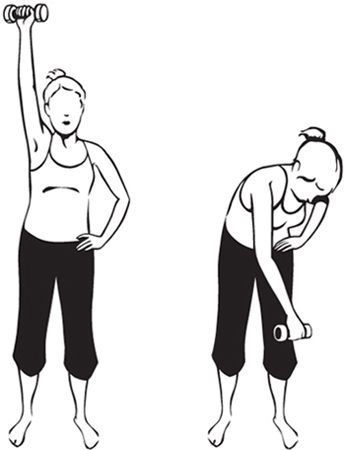Some Information May Scare You
The
information is not included to frighten you; it’s there to provide facts
about particular medical situations that may occur during pregnancy.
If a woman experiences a serious problem,
she and her partner will probably want to know as much about it as
possible. If a woman has a friend or knows someone who has problems
during pregnancy, reading about it might relieve her fears. We also hope
our discussions can help you start a dialogue with your doctor, if you
have questions.
Nearly all pregnancies are uneventful,
and serious situations don’t arise. However, please know we have tried
to cover as many aspects of pregnancy as we possibly can so you’ll have
all the information at hand that you might need and want. Knowledge is
power, so having various facts available can help you feel more in
control of your own pregnancy. We hope reading information helps you
relax and have a great pregnancy experience.
If you find serious discussions
frighten you, don’t read them! Or if the information doesn’t apply to
your pregnancy, just skip over it. But realize information is there if
you want to know more about a particular situation.
9. Gas (Flatulence)
Are you experiencing more gas
(flatulence) than normal? It’s not uncommon. What you eat definitely has
an impact on gas production. And foods that trigger gas may change each
trimester.
Eating slowly may help reduce the
amount of air you take in, which in turn helps reduce gas. Keep
exercising—it can help break up gas pockets. Stay away from certain
foods, including sugar, some dairy and bread products. Sorbitol, a sugar
substitute found in many “lite” foods, can also cause gas.
10. Nuchal Translucency Screening
Nuchal translucency screening is a
test to help healthcare providers and pregnant women find answers about
whether a baby has Down syndrome. An advantage of this test is results
are available in the first trimester. Because results are available
early, a couple may make earlier decisions regarding the pregnancy, if they choose to do so.
A detailed ultrasound allows the
healthcare provider to measure the space behind baby’s neck. When
combined with the blood tests, the results of these two tests (ultrasound and blood test) can be used to predict a woman’s risk of having a baby with Down syndrome.
Be careful with bottled waters—some contain caffeine.
11. Exercise for Week 13
Stand with your feet apart and your knees
relaxed. Holding a light weight in your right hand (a 16-ounce can will
do fine), extend your right arm straight over your head. Contract your
tummy muscles, bend slightly at the waist, then swing your arm down and
over your left foot. Complete the exercise by making a complete circle
and returning your arm to the original position, above your right
shoulder. Repeat 8 times on each side. Strengthens back and shoulder muscles.
